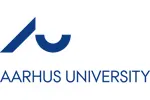

| The award | How you will study | Study duration | Course start | Domestic course fees | International course fees |
|---|---|---|---|---|---|
| MSc | Full-time | 4 semester | September, February | 0 | EUR 0 per year |
You adjust the lasers in the lab before going to your next lecture on cold atoms. You feed your computer the latest measurements from the scanning tunnelling microscope, and see if the placement of the extra atoms on the surface matches your model calculation. You do some work on your model for a quantum computer before going to the next lecture in quantum optics. Or you might be at CERN this week, running experiments with anti-protons to test new possibilities for radiation therapy, or predicting the fate of ultra-relativistic lead ions in the Large Hadron Collider.
Students on the MSc programme in Physics are actively involved in research and in the discussion of new discoveries and theories. The curriculum is tailored to the interests and intended profile of the individual.
FOCUS ON RESEARCH
Teaching on the MSc Physics programme is greatly influenced by the fact that the lecturers are active researchers. In this context, students benefit from the down-to-earth, informal relationship between the academic staff and students. When students write their thesis, they are connected with a group of researchers and become involved in one or more of the group's research projects.
Students on the programme have a wide range of options for specialisation, both in the Department of Physics and Astronomy and via the department's close collaboration with AU's other centres, the Institute for Storage Ring Facilities (ISA) and the Interdisciplinary Nanoscience Centre (iNANO). The department also has research groups working at several institutions outside Denmark, including a number of the major European laboratories.
SPECIALISATION
The MSc in Physics programme is open to students with a BSc degree in physics or another BSc degree in science with substantial physics and mathematics content. The programme is challenging and research-oriented and reflects the interests of private-sector companies, research institutions, and the public sector. It is also flexible and can accommodate the interests and strengths of the individual student.
Students can specialise within (for example) atomic and molecular physics, solid-state physics, subatomic physics, or astrophysics. The programme also qualifies students for a career in research: students may apply for admission to the university's PhD programme either during the MSc degree programme or on completion of the thesis.
STUDENT LIFE
The Department of Physics and Astronomy aims to create a good student environment both in terms of working methods and social environment and facilities. When you write your master's thesis in one of the department's research groups, you will be given your own desk in an office shared with other students.
The department also has many social and academic associations with their own festive traditions. They organise events like the "hat party," celebrating the most recent graduates. There is also the Physics Friday bar, where students get together at the end of the week to enjoy a drink and a catch-up.
CAREERS
Graduates from the MSc Physics programme have a wide range of career opportunities. A number of graduates are working in the private sector in areas such as modern optics, materials physics, or surface physics. Large IT companies, patent agencies, and the financial sector are increasingly hiring one or more physicists on their staff. The number of graduates working in hospitals as physicists has also dramatically increased, with most of these working in radiation physics and radiation therapy. Some of our recent graduates are in research positions at universities or at public research institutions.
All EU/EEA/Swiss citizens are exempt from payment of tuition fees.
In general, admission to a Master’s degree programme requires successful completion of a relevant and recognised university degree equivalent to a Danish Bachelor’s degree in level and length (180 ECTS). All applications must also fulfil the English language requirements.
Find more information about the admission requirements, application procedure and deadlines at Aarhus University.
In addition, you must meet the specific requirements for the Physics programme, which can be found on the Physics study programme page.
Below are some suggested courses at other providers that you may also be interested in:
Project Management and Innovation MSc
Strathclyde Business School, University of Strathclyde
Find out moreBachelor of Arts / Bachelor of Creative Industries Bachelor Degree
Western Sydney University
Find out moreIf you do not meet the entry requirements for this course then consider one of these postgraduate preparation courses from another institution:
Graduate Diploma of Professional Psychology Practice
Australian College of Applied Psychology (ACAP)
Find out moreInternational Development (Environment, Sustainability and Politics) Graduate Diploma
University of Birmingham
Find out moreThere are 56 other courses listed from Aarhus University. A selection of these are displayed below:
Find out more about studying in Denmark